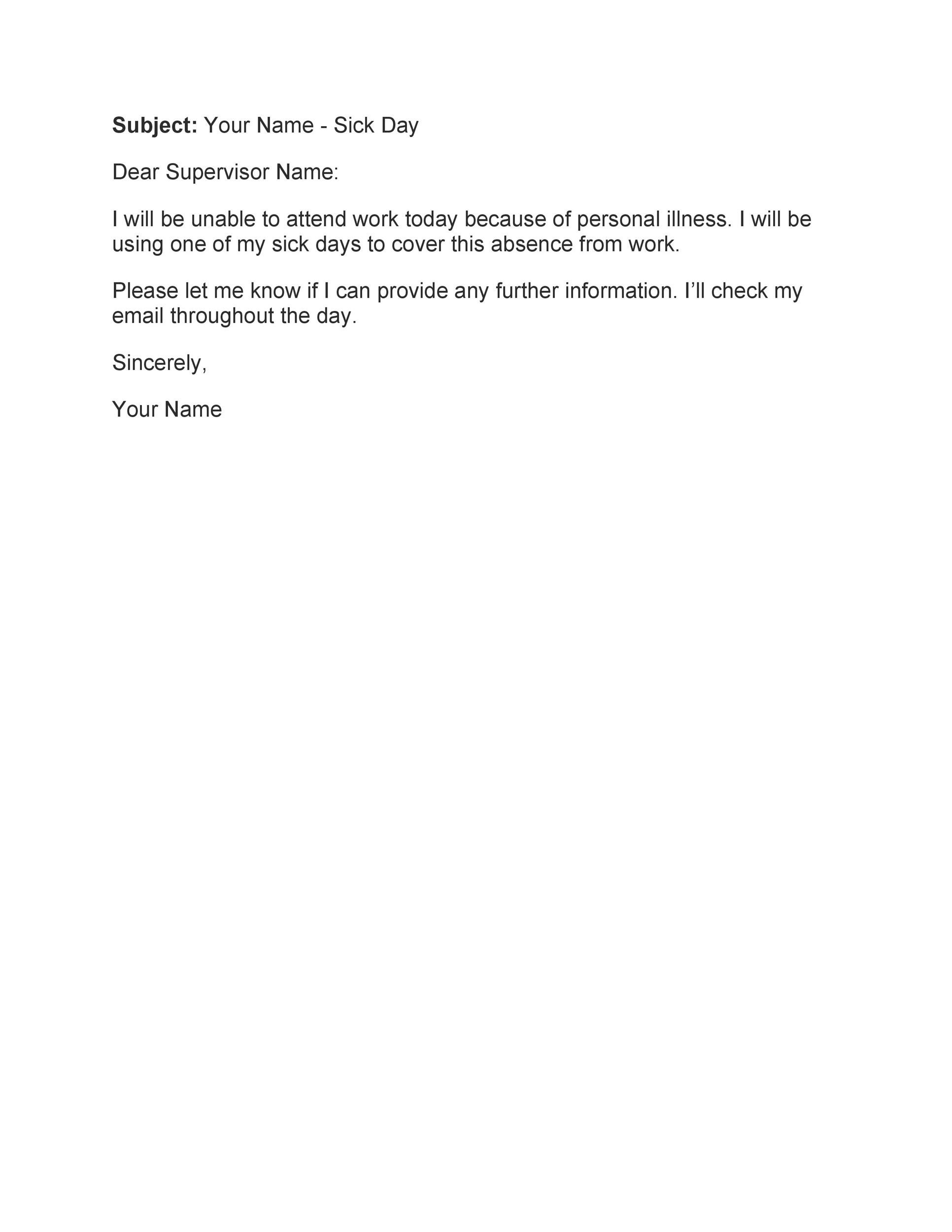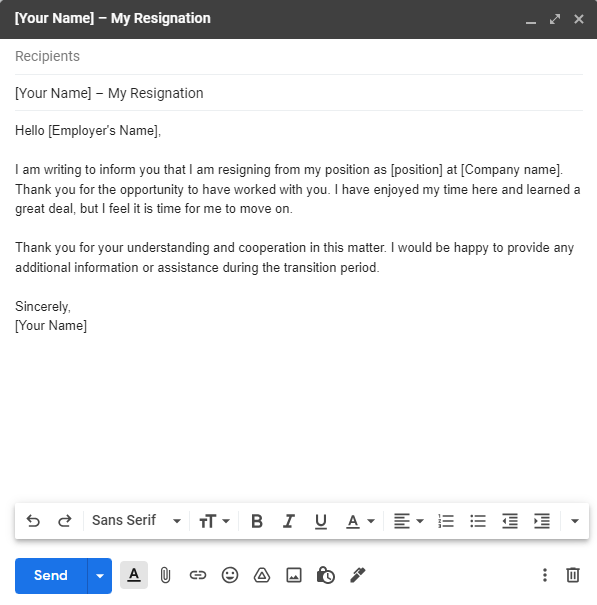How To Tell A Boss You Are Leaving

Navigating the departure from a job is rarely a straightforward process. It's a delicate dance of professional courtesy and personal ambition, requiring careful consideration to maintain relationships and future opportunities. The way you inform your manager of your decision can significantly impact your professional reputation and the transition period for both you and your employer.
This article provides guidance on effectively communicating your resignation to your boss. It emphasizes the importance of timing, preparation, and professionalism. It will equip you with practical strategies to navigate this critical conversation gracefully, ensuring a smooth exit and preserving valuable connections.
Timing is Everything
Choosing the right moment to speak with your manager is crucial. Avoid delivering the news on a Monday morning or right before a major deadline. Instead, opt for a time when your manager is likely to be less stressed and more receptive to a conversation.
Ideally, schedule a private meeting in advance rather than springing the news unexpectedly. This demonstrates respect for their time and allows them to mentally prepare for the discussion. A pre-scheduled meeting also allows you time to prepare your talking points.
Preparation is Key
Before the meeting, thoroughly prepare your resignation letter. This document should clearly state your last day of employment and express gratitude for the opportunities you've had. Keep it concise and professional, avoiding any negative remarks about the company or your colleagues.
Practice what you want to say to your manager beforehand. This will help you remain calm and focused during the conversation, preventing you from getting flustered or saying something you might regret. Anticipate potential questions and prepare thoughtful responses.
The Conversation: Delivering the News
Begin the conversation by thanking your manager for their support and guidance during your time at the company. Express your appreciation for the opportunities you've been given. This sets a positive tone and shows that you value your relationship with them.
Clearly and directly state your intention to resign. Avoid beating around the bush or offering vague explanations. Be straightforward and confident in your decision, while remaining respectful and professional.
Present your resignation letter at the appropriate moment during the conversation. This formalizes your resignation and provides your manager with a written record of your decision. Be prepared to discuss the details of your departure, such as your last day and any transition plans.
Maintaining Professionalism
Throughout the conversation, maintain a professional demeanor. Avoid gossiping, complaining, or criticizing the company or your colleagues. Focus on the positive aspects of your experience and express your gratitude for the opportunities you've been given.
Offer your assistance in ensuring a smooth transition. Volunteer to train your replacement, document your processes, and complete any outstanding tasks. This demonstrates your commitment to the company and your willingness to help during the transition period.
Be prepared to answer questions about your reasons for leaving, but avoid providing excessive details. Focus on your career goals and the opportunities that your new role offers. Keep your explanation concise and professional, avoiding any negative comments about your current employer.
Navigating Difficult Situations
In some cases, your manager may react negatively to your resignation. They may become angry, defensive, or try to guilt you into staying. It's important to remain calm and professional, regardless of their reaction.
Reiterate your gratitude for the opportunities you've been given and express your respect for your manager and the company. Avoid getting drawn into an argument or becoming defensive. Stick to your decision and maintain your professional demeanor.
If your manager becomes abusive or disrespectful, politely end the conversation and leave. You are not obligated to endure mistreatment or harassment. If necessary, report the incident to Human Resources.
The Importance of a Graceful Exit
Leaving a job on good terms can be incredibly beneficial for your future career. You never know when you might cross paths with your former colleagues or need a reference from your previous manager. Maintaining positive relationships is essential for networking and career advancement.
LinkedIn, for example, highlights the importance of professional connections in career growth. A strong network can open doors to new opportunities and provide valuable support throughout your career.
A graceful exit demonstrates professionalism and integrity. It shows that you value relationships and are committed to maintaining a positive reputation. This can have a lasting impact on your career and open doors to future opportunities.
Looking Ahead
Once you've informed your manager of your resignation, focus on completing your remaining tasks and ensuring a smooth transition. Offer your assistance to your colleagues and be proactive in documenting your processes.
Thank your colleagues for their support and collaboration during your time at the company. Express your best wishes for their future success. Maintain positive relationships with your former colleagues, as they may become valuable contacts in your professional network.
By handling your resignation with professionalism and grace, you can leave a lasting positive impression and set yourself up for future success. Remember that your reputation is your most valuable asset, and a thoughtful departure can significantly enhance it.



:max_bytes(150000):strip_icc()/2060865a-a00dd037c25547df8a83c13bb57cd695.jpg)


:max_bytes(150000):strip_icc()/how-to-tell-your-boss-you-re-quitting-your-job-2063035_FINAL-5b88037cc9e77c002cc6f46c.png)











